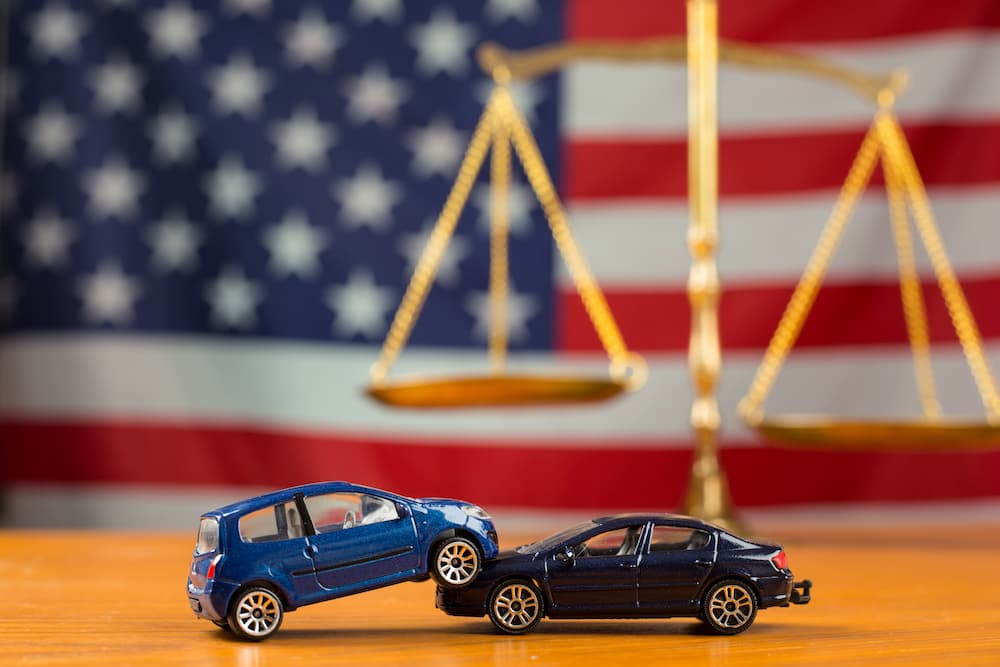In a split second, your life can be forever changed when you become the victim of a car accident. With ramifications that can include financial, physical, and emotional implications, car accidents can impact your life for months or years – or forever. Car accident settlements allow victims to be fairly compensated by the at-fault party, which may help relieve a victim’s burden to some degree.
A car accident claim will enable you to pursue damages for medical expenses, vehicle damage, lost wages, and various other factors, including emotional pain and suffering. But exactly how do car accident settlements work?
Let’s take a close look at how car accident settlements work, addressing key topics including:
- Why you need a lawyer for a car accident settlement
- What the process of getting a car accident settlement looks like
- How long it takes to receive a car accident settlement
- How to get paid for a car accident settlement
Do I Need a Lawyer for a Car Accident Settlement?
First and foremost, it is important to address one of the most common questions on this topic. It is not uncommon for accident victims to be uncertain whether or not an attorney is needed during the car accident settlement process. In fact, insurance companies may lead you to believe that you can effectively manage the situation on your own – but this couldn’t be further from the truth.
Car accident claims can easily become very complex very quickly. Even a seemingly simple, straightforward case can prove to be far more complicated than expected, leaving you feeling overwhelmed and confused. And without a knowledgeable legal professional, you can receive far less financial compensation than you are rightfully owed.
By working with a skilled personal injury attorney for a car accident settlement, you can be confident that you will be prepared for whatever may come your way.
Car Accident Settlement Process and Timeline
There are several steps involved in obtaining a settlement for a car accident, and the process varies based on each unique case.
Reporting the Accident
Immediately after a car accident, it is imperative to follow the proper steps.
Colorado state law requires that law enforcement be notified if an accident results in any property damage or injury. Even if an incident seems relatively minor, contacting law enforcement is essential. A police report will serve as official documentation for the settlement process; without it, you may be unable to submit any claim effectively.
Filing a Personal Injury Claim
When you are the victim of a car accident, the at-fault driver can be held legally liable for damages. You will need to file a personal injury claim to receive these damages.
In Colorado, car accident damages can fall into one of three categories:
- Economic damages: Pocket expenses that are generally quantifiable, such as medical treatment bills, lost wages, and funeral costs.
- Non-economic damages: Compensation for losses that are not necessarily tangible, such as emotional distress, pain, and suffering, anxiety, grief, or loss of enjoyment of life.
- Physical impairment and disfigurement: Costs related to pain and suffering related to permanent impairment, including neurological damage, cosmetic disfigurement, and others.
Typically, the at-fault driver’s insurance provider will be the one providing payment for your damages. As such, a personal injury claim will be filed with the relevant insurance company. Be aware that the Colorado statute of limitations for personal injury claims states that you have three years from the date of an accident (in most cases) to file your accident claim.
Investigating the Accident

After a claim has been filed, the accident will be investigated by the at-fault driver’s insurance provider. This step is completed by insurance claims adjusters, whose job is to review all evidence you have provided to prove the validity of your claim.
Providing ample evidence is necessary to reach an optimal outcome in your case. Your attorney will assist you in the organization of this evidence, which may include information such as:
- Photographs/video of the accident scene
- The accident police report
- Witness statements
- Medical records
- Expenses associated with the incident
A personal injury attorney will also work to protect your privacy and rights during the investigation process.
Insurance Claim Approval or Denial
Once the investigation is complete, the insurance company will either approve or deny your claim.
If your claim is approved, you will move forward to seeking a reasonable settlement. If your claim is denied, the insurer should explain why – which your attorney will use to plan the next steps.
Seeking a Settlement
If your claim is approved, the insurance company will typically send a settlement offer representing a relatively low dollar amount. They aim to pay you as little as possible, but you do not have to accept the initial offer. Legally, you have the right to a settlement negotiation that accurately reflects the costs and accident injuries you face.
A personal injury lawyer will be able to leverage their legal expertise on your behalf, ensuring that the insurance provider is not able to gain the upper hand.
Mediation Meeting
What if an insurance company won’t agree to a settlement? The next step may be mediation if the provider is unwilling to agree to a fair settlement but is willing to negotiate in good faith. An unbiased third party will be the mediator for a meeting between you (and your lawyer) and the insurance company. The goal of a mediation meeting is for both sides to come to an agreement. If mediation is not an option, your attorney may recommend moving to the next step, which is filing a lawsuit.
Filing a Lawsuit
If mediation is unsuccessful, or if mediation is not a reasonable option, your attorney may suggest filing a personal injury lawsuit. Although lawsuits can be lengthy, they are the best option in certain cases. Even if a lawsuit is filed, your attorney may continue to try to resolve your case before trial. Only a very limited number of personal injury lawsuits go to trial.
How Long Does a Car Accident Settlement Take?
Settling can take anywhere from a few months to a couple of years, and sometimes more. The actual timespan depends on various factors, including the complexity and severity of the case.
How Do I Collect My Car Accident Settlement?
In terms of how to get a car accident settlement, the practicalities of the process itself generally depend on your specific situation.
Generally, the insurance company will provide a check for the settlement amount to your attorney once you have signed a release of liability form. Out of your settlement, and with your authorization, your attorney will take their compensatory percentage, repay their costs advanced on your behalf, and repay your medical providers and/or health insurers for money they paid or are owed for your medical bills.
However, the process can differ if your case went to trial and the at-fault party is now required to pay you for damages. How you are paid will be based on whether or not the driver was insured and whether they have the funds to pay you the owed amount in full. Your personal injury lawyer will help you navigate the specific situation as needed.
Contact an Experienced Personal Injury Attorney at Springer & Steinberg, P.C.
It is crucial to understand that insurance companies are for-profit entities that prioritize their own needs above yours, even when you are the victim of a car accident. For this reason, partnering with an experienced car accident lawyer is key – your attorney will serve as your advocate and guide, fighting on your behalf and pursuing the just outcome you deserve.
The personal injury attorneys at Springer & Steinberg possess extensive experience and skill, making them highly well-equipped for virtually every type of case imaginable. Our legal team is dedicated to serving the needs of accident victims and their loved ones. We will not step down until we have achieved the best possible outcome for your case.
Don’t hesitate to contact our firm today for more information about car accident settlements, including specific details concerning your situation.

